Day 19 – Islamic Shia Ithna Asheri Jamaat of Toronto – 9000 Bathurst Street, Thornhill
Comments Off on VIDEO: Day 19 – Islamic Shia Ithna Asheri Jamaat of Toronto – 9000 Bathurst Street, Thornhill
Category:
Tagged with:
Share it:
Comments Off on 30Mosques.com | Day 17: It’s Still Five A Day
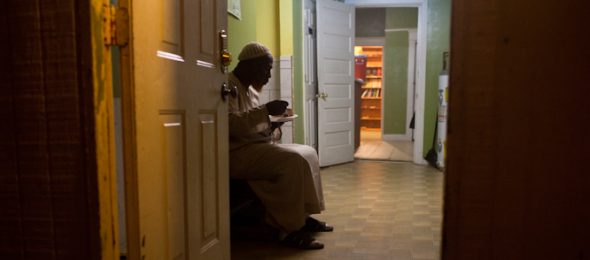
By Aman Ali
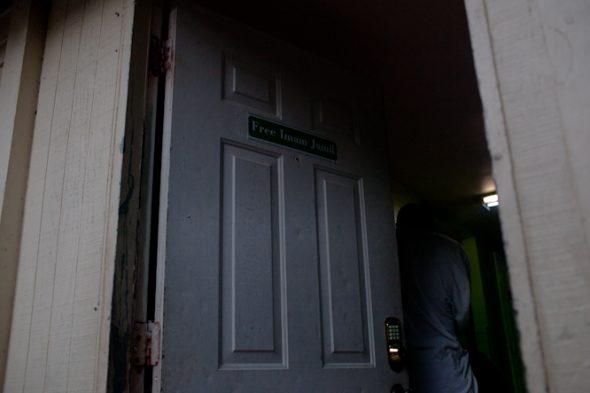
It’s been over 11 years since Imam Jamil Al-Amin, known during the Civil Rights era as H. Rap Brown, was arrested for shooting two Atlanta officers.
His wife Karima of over 43 years spoke with me, folding her hands in her lap and opening up about how she deals with his controversial conviction.
“Well, it’s in Allah’s hands and we submit to that,” she said. “When you submit, you take anything and everything that comes your way. Nothing throws us.”
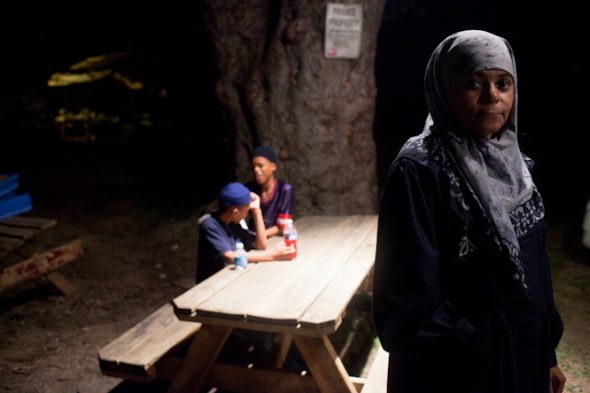
I first learned about Imam Jamil in high school through hip-hop. Public Enemy put out a track in 2002 where Chuck D says “Jamil Al-Amin, nah’ mean?” Well, a kid like me from a white Ohio suburb didn’t know what he meant, so I Googled the name. Before he was Muslim, Jamil Al-Amin was H. Rap Brown, a civil rights activist and chairman of the Student Nonviolent Coordinating Committee. He was controversial for his views on race and was often accused of inciting riots.
In the 1970s, he and his wife embraced Islam and established a mosque here in the West End of Atlanta. It was one of the first mosques in the area to hold the five daily prayers in Islam known as salat. Among many things, the mosque under Imam Jamil’s leadership cleaned up crime in the neighborhood and many convicted criminals abandoned their pasts and embraced Islam. On the national level, he tried to bring many national Muslim groups together.
“He always felt if we prayed together and fasted together, we could be a political force,” Karima said. “He never felt we were outnumbered, just outorganized.”
I asked the current imam of the mosque, Nadim Ali, what it was like to deal with Imam Jamil getting locked up.
“He trained us for this,” he said. “When he got incarcerated, he told us ‘It’s still five a day. It’s never been about me, still gotta pray five times a day and establish your salat.’”
(Side note: Imam Nadim Ali is an incredible singer and in the coming days we’ll be posting a video of a quick song he did with his fellow group mates.)
The following are photos from the mosque community that Imam Jamil help start.
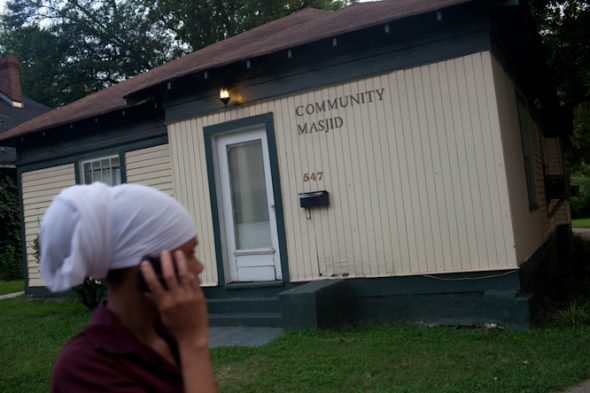
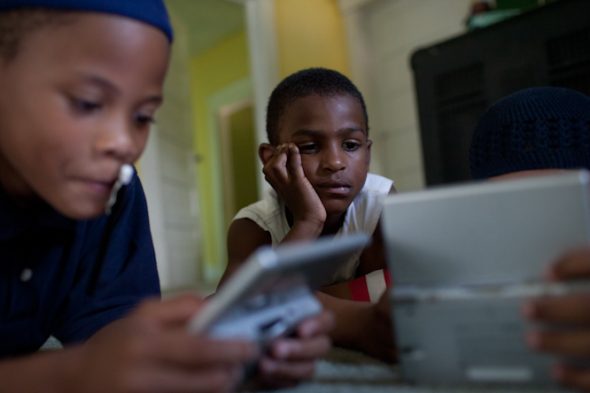
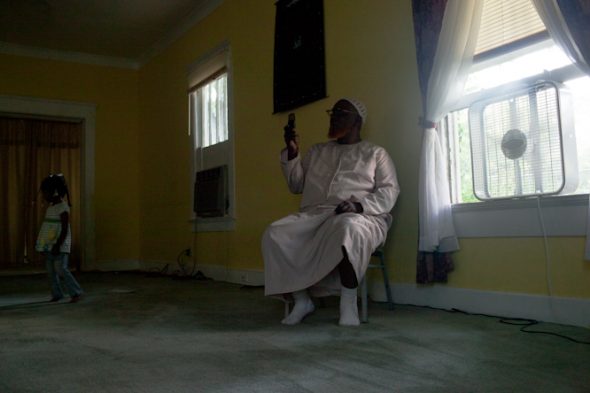
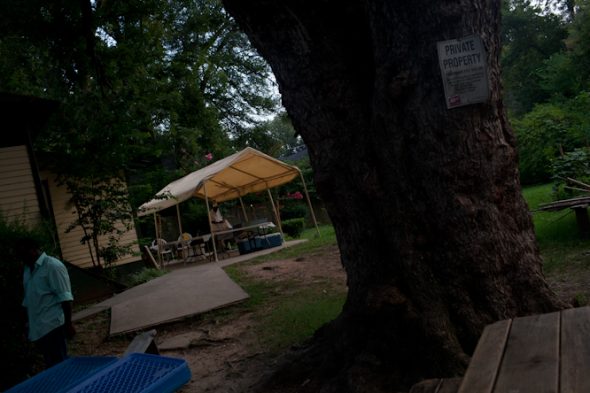
You can read all about Imam Jamil here and about his controversial arrest and conviction here. It’s important for us to go beyond the headlines and explore his relationship with his wife and his spiritual impact on the people that know him.
Since the beginning, Karima said Imam Jamil has always been a political target. She said she never worried about his safety fielding death threats and getting arrested after speeches because it came with the territory of being a public figure at the time.
“We were young and on top of the world,” she said. “I never really thought in terms of something happening to him.”
She added she felt the same way when he was arrested in 2000. The family had just returned from a dinner at Red Lobster when Imam Jamil went to the mosque to lead prayer and check up on a local Islamic goods store nearby. Moments later, Karima, who is also a practicing attorney, learned he was arrested.
“The story about how he was arrested is fuzzy,” she said. “The main thing is he maintains his innocence and he was not the person who did those crimes.”
I told Karima I’m sure dealing with the arrest ever since has been a rocky journey of emotional ups and downs for her.
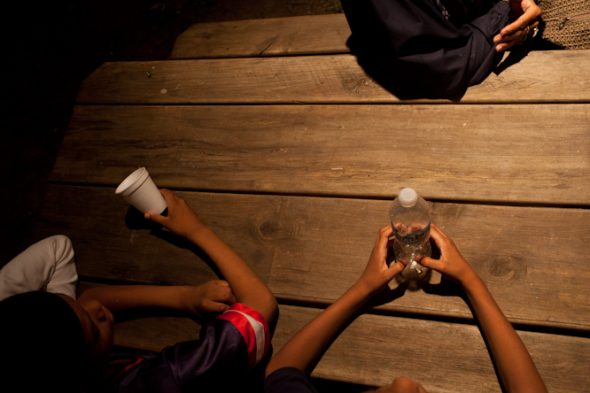
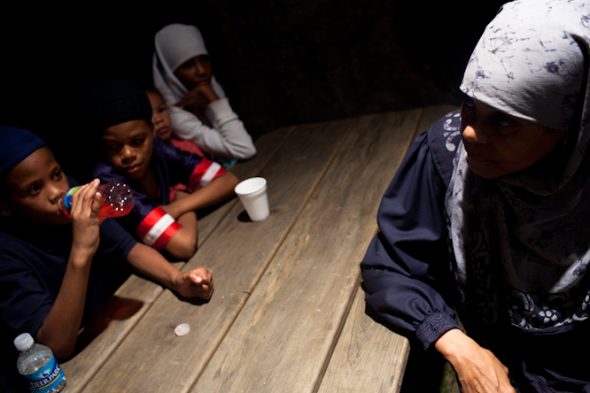
“I think because my whole background is about struggle, I don’t see ups and downs,” she replied. “Allah has the plan and he’s inside prison still making a difference with people.”
Imam Jamil was first incarcerated in Georgia. Many people he met while in prison embraced Islam after living with him.
“People tend to pay attention to people they think might be a celebrity or well known,” Karima said. “But I think it goes beyond that. It’s the way he was able to connect to people.”
In 2007, the federal government intervened because they felt he was too high-profile of a person to be locked up in Georgia. So they transferred him to the Supermax Prison in Colorado. Regardless of how you feel about Imam Jamil’s history, it seems way excessive to me to lock him up in the same prison as Terry Nichols, the Oklahoma City bomber, Ted Kaczynski, the Unabomber, and several other convicted terrorists.
“That’s the thing,” Karima said. “You and I can make distinctions but the federal government does not.”
Supermax gives Imam Jamil two phone calls to make a month. Karima said she and her son try to visit him in Colorado whenever they can, but shelling out around $2,000 each time to travel there gets costly. Many people write Imam Jamil letters, including one of the mosque’s congregants here Qaasim Griggs, 8. Qaasim told me he learned about Imam Jamil from one of his uncles and wrote to Imam Jamil about how he liked his name. The imam wrote back.
“He said that he has a feeling I’m going to be a strong boy,” Qaasim said with a smile. “It made me feel happy.”
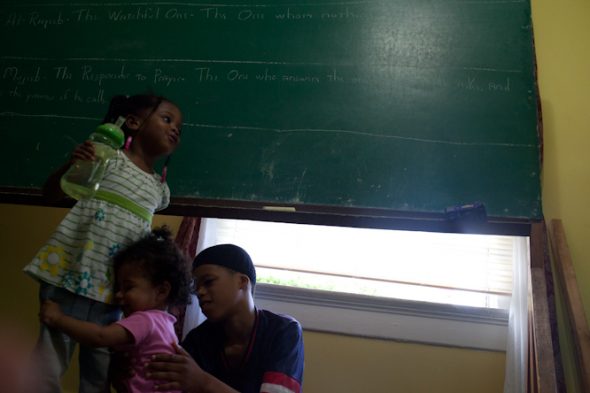
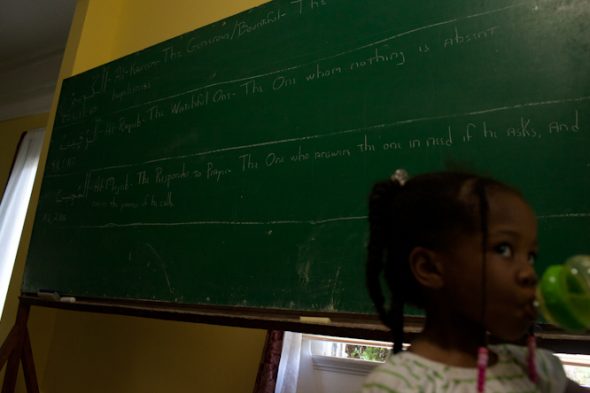
I asked Karima after over 43 years of marriage, what is it that she loves about Imam Jamil.
“He always has had the thought pattern “As long as I can make my five, I’m going to be ok,” she said. “He represents commitment to the degree you can’t even put a label on and that’s why I’ve been with him since I first met him in 1967.”
Category:
Share it:
Comments Off on VIDEO: Day 18 – Islamic Society of Niagara Falls – 6768 Lyons Creek Road
Category:
Share it:
Comments Off on 30Mosques.com | THE FIRST FIFTEEN DAYS IN PHOTOS
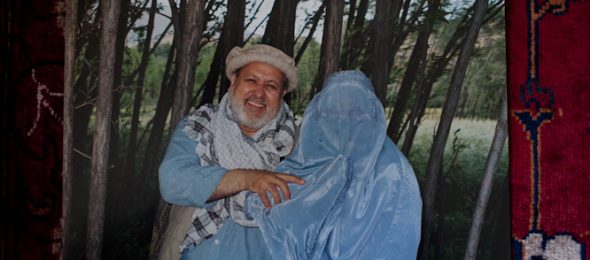
By Bassam Tariq
I am typing this in Atlanta as Aman sleeps and I am running on less than two hours of sleep. We have travelled across America in the past 15 days and we are only half way through our trip. This calls for a look back at some of our favorite moments and also an opportunity to share some great photos that didn’t make the cut for the blog posts.
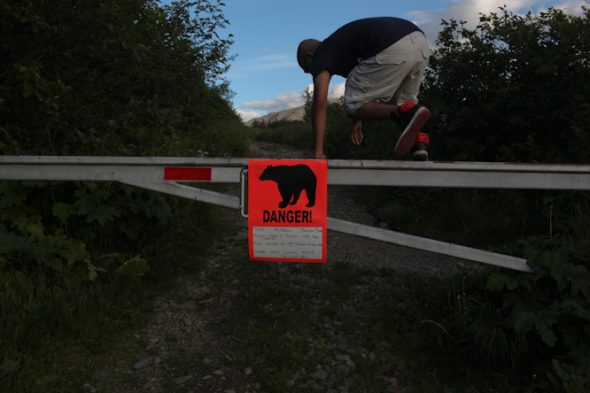
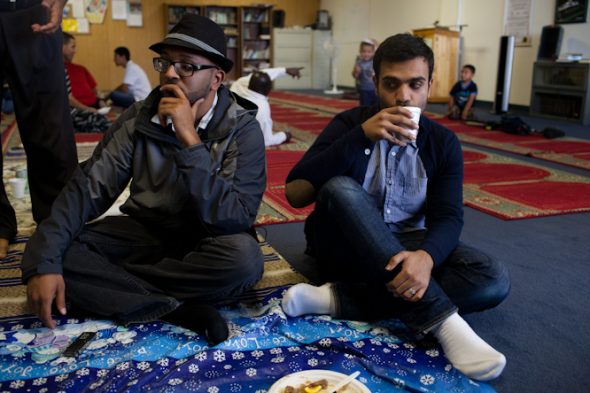
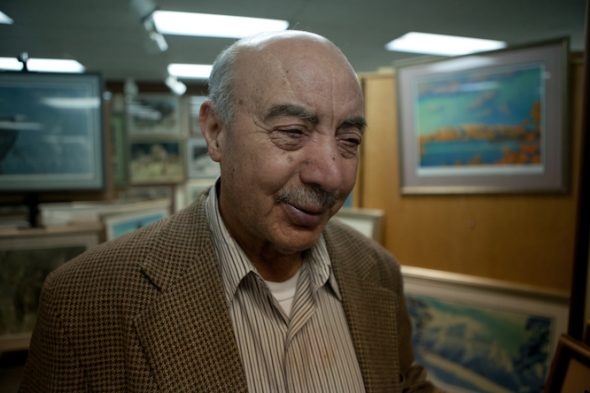
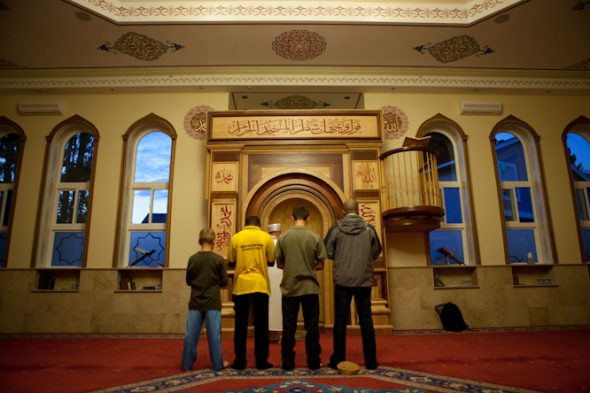
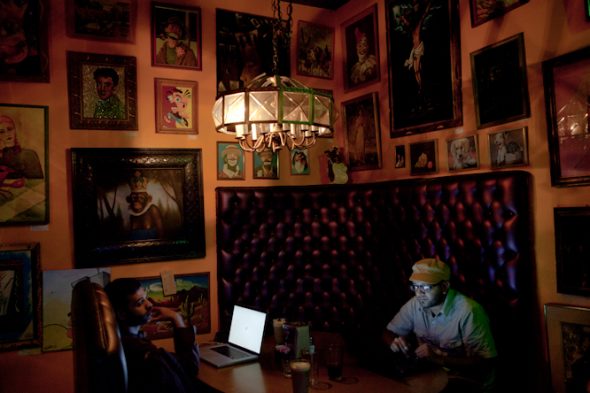
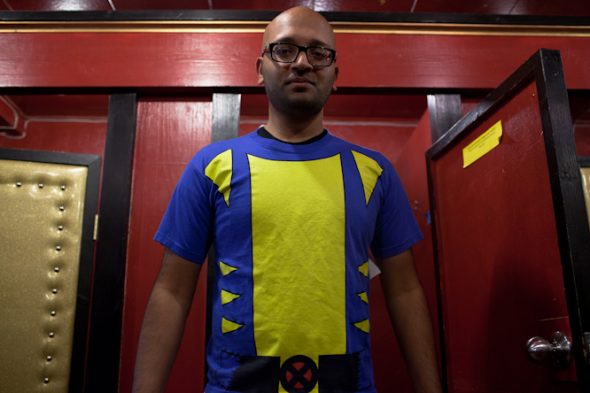
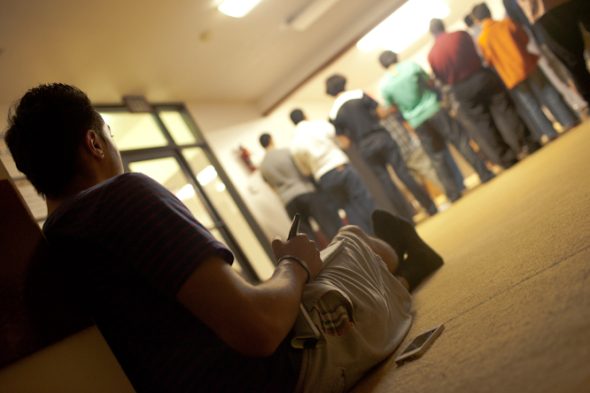
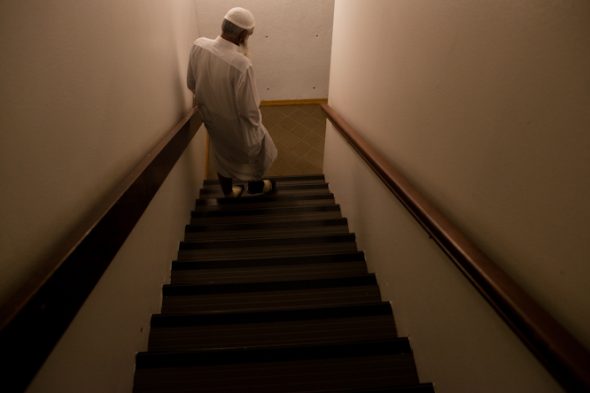
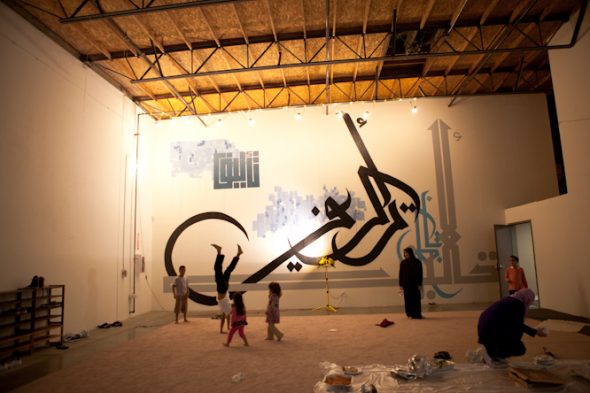
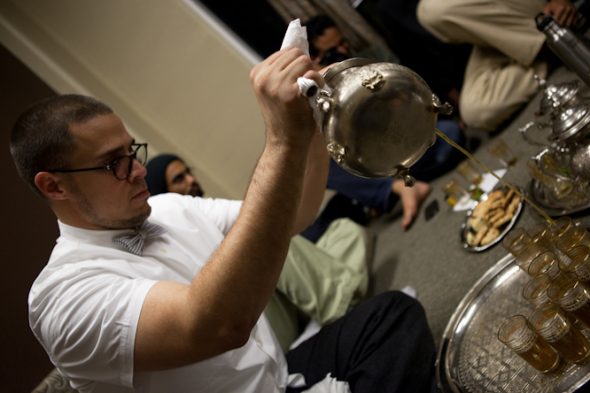
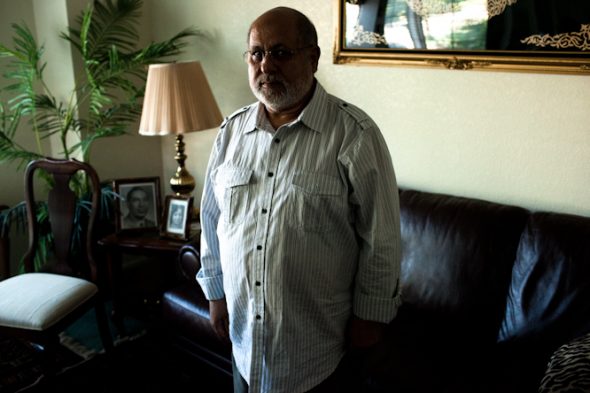
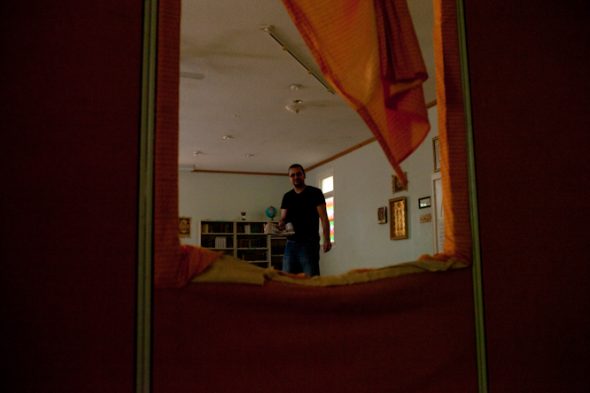
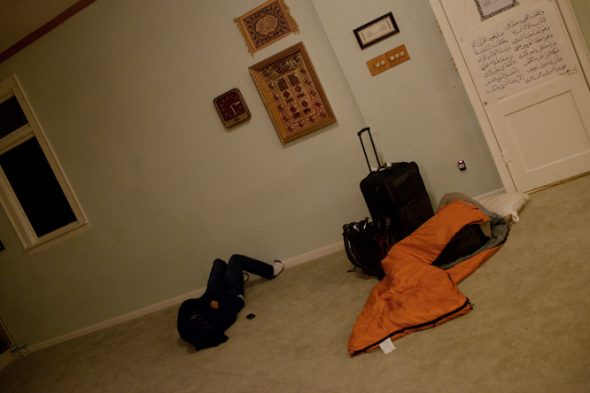
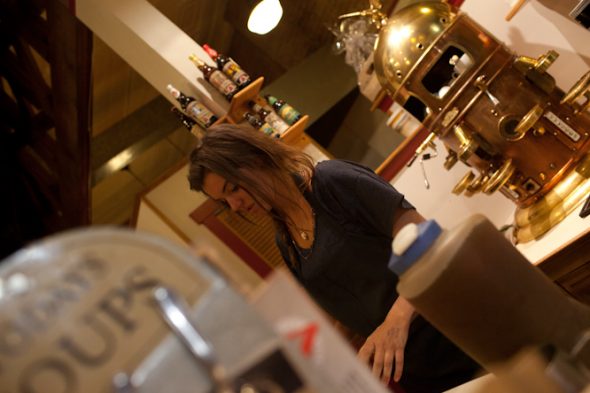
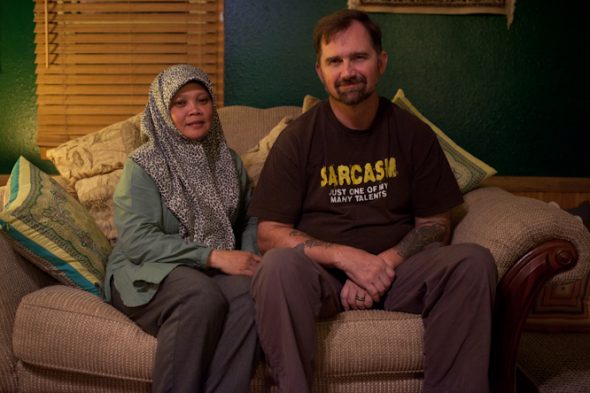
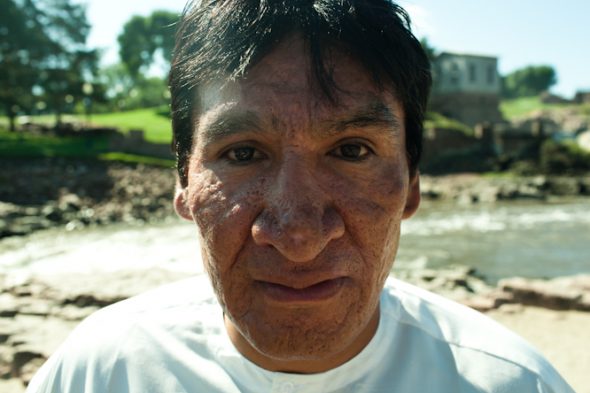
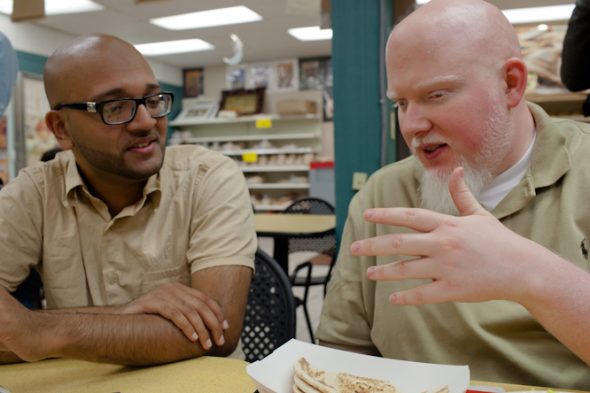
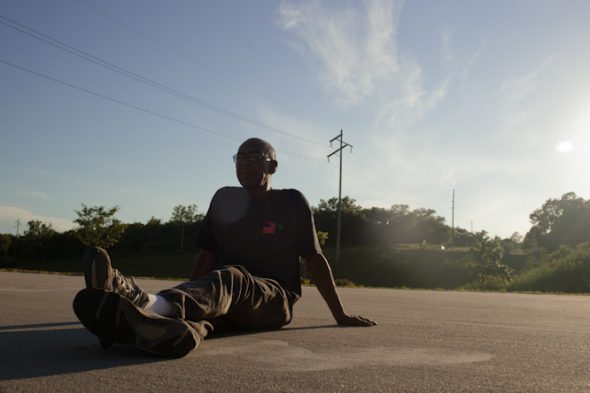
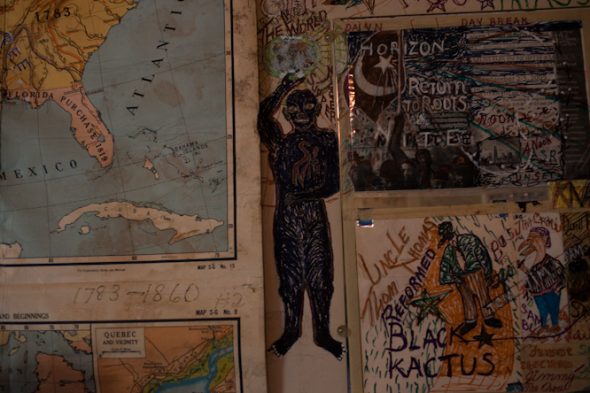
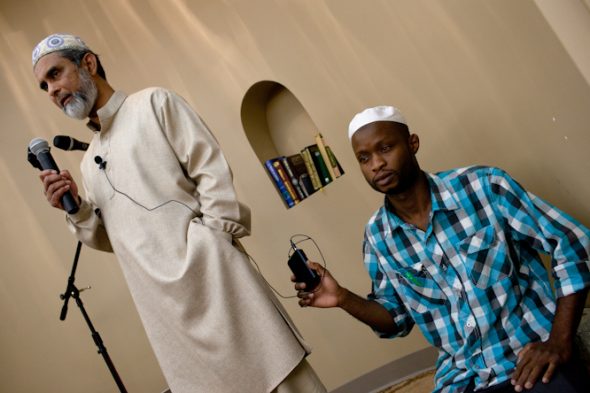
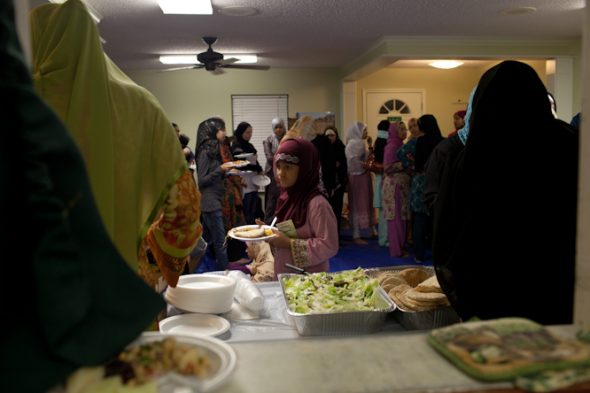
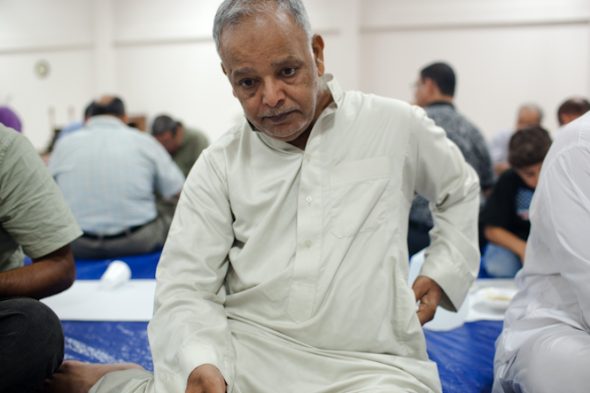
Category:
Tagged with:
Share it:
Lights are off inside the Albanian Muslim Society of Toronto at 564 Annette Street at Runnymede Road.
One minute before Maghrib.
And no one is home…
Category:
Tagged with:
Share it:
Comments Off on 30Mosques.com | Day 16: The Quiet Life
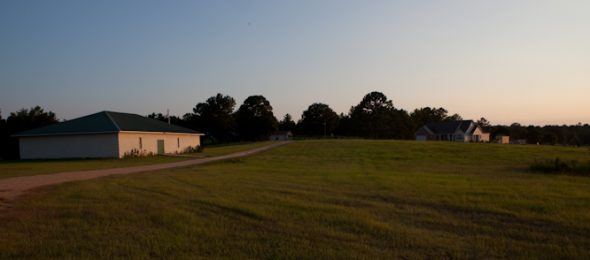
By Bassam Tariq
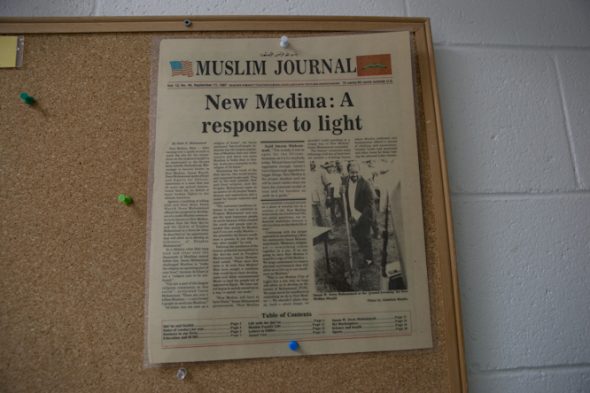
In 1987, Warith Deen Muhammad, the son of Elijah Mohammad, took a shovel and dug it deep in a small farmland. It was the groundbreaking for New Medina, a small community in rural Southwest Mississippi that would celebrate the values of Muslims and the African American experience.
The story made the front page of The Muslim Journal and many members of the African American Muslim community were enamored by the idea. The promise of a self-sustaining community that championed values, harmony and healthy living was compelling. More than 5,000 families inquired to buy land. The plans were drawn out and many families began to move into the New Medina. They were all pioneers part of this large and revolutionary initiative that hoped to create a unique and vibrant Muslim American culture.
***
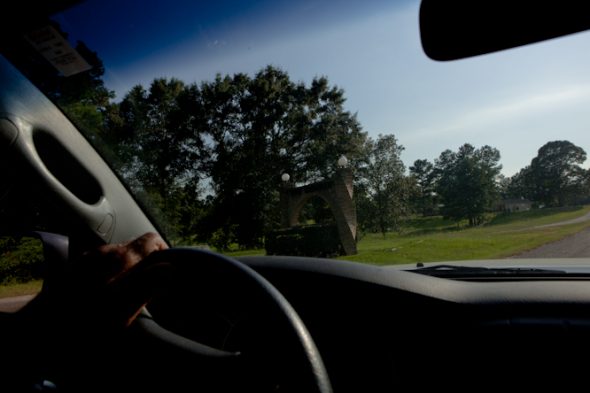
Aman and I enter the gates of New Medina and make our way to meet the Imam, the spiritual leader, of the community. We aren’t sure which one is his house so we begin to knock on all the doors we see. The town is quiet. Not a single car or soul passes by. Soon enough, we find ourselves at the door of a man named Abdul Shareef (Brother Abdul) and he is happy to take us on a tour throughout the New Medina property in his Toyota pick-up truck. Shareef is 81 years old. He hunches when he walks and speaks with a soft, disarming cadence. I ride shotgun in his truck as he takes us through the neighborhood.
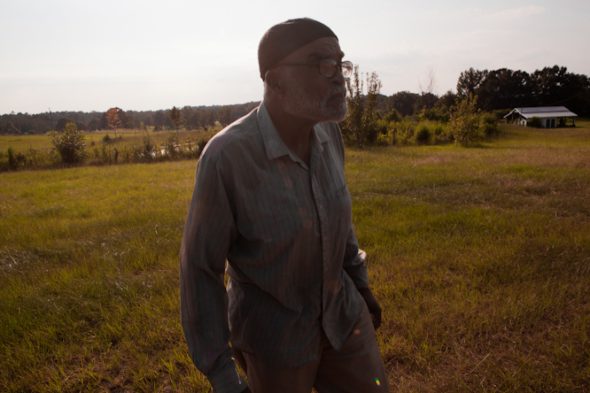
The following photos were taken while riding in Brother Abdul’s truck tour through New Medina
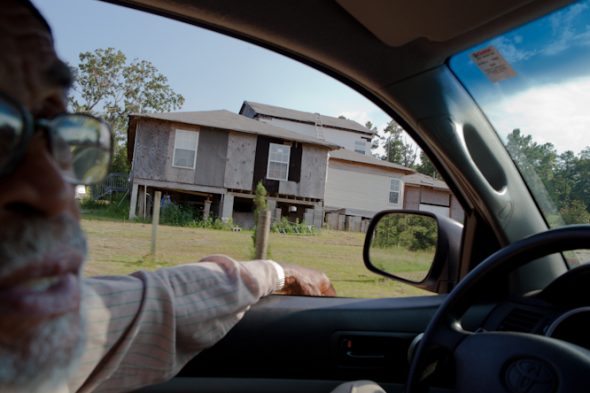
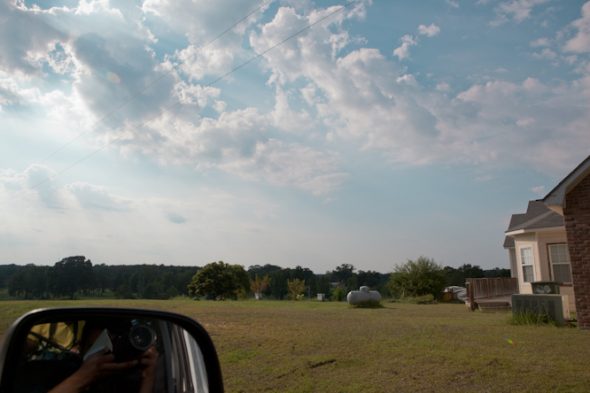
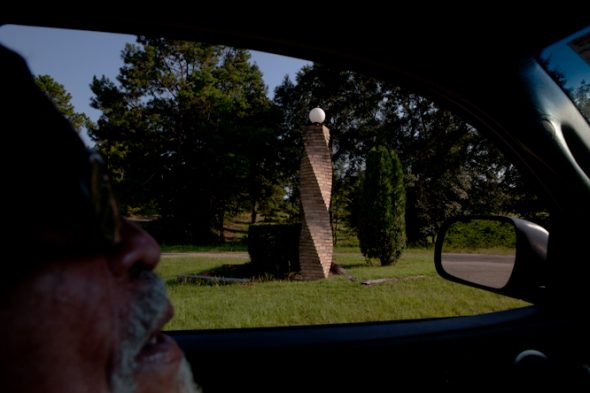
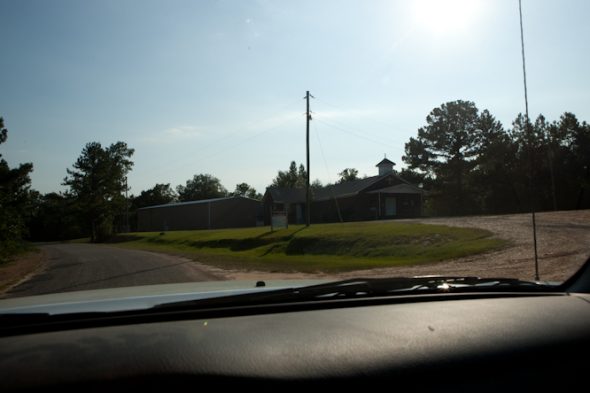
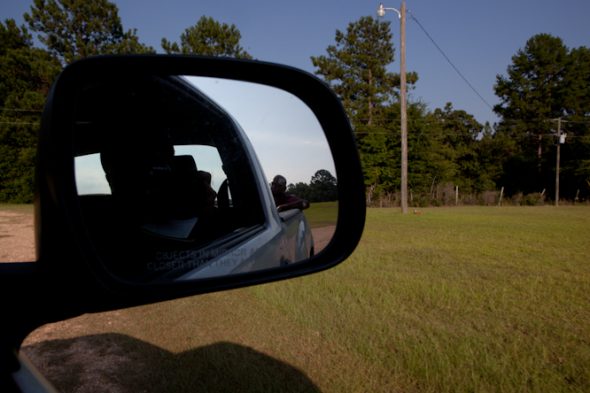
Brother Abdul is a pioneer of the community. He was one of the founding members of New Medina. I asked him why he wanted New Medina to be in Mississippi.
“I grew up in Hattiesburg, Mississippi. After being in Chicago, I wanted to figure out a way to move back here.”
Brother Abdul worked as a mailman for the post office his entire life. He retired in his 60’s and now spends most of his time at the mosque. His wife and him have been married for the past 62 years. There are only eight families in all of New Medina. Two of the eight are Christians, but all are African American. There is a sea of wild grass on all sides of the area with small vegetation areas fenced up.
“We have to fence the vegetation otherwise the deer will come and eat it all.”
Most of the families have their own farms, some grow chicken, others grow vegetables and fruits. All the street signs are named after the attributes associated with God: Ar-Rahman, the merciful. Al-Halim, the Forebearing One, etc.
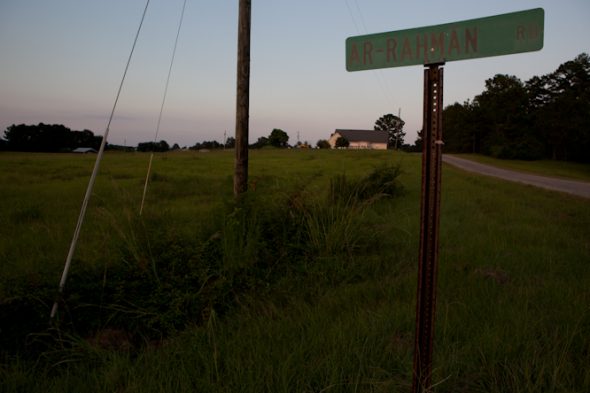
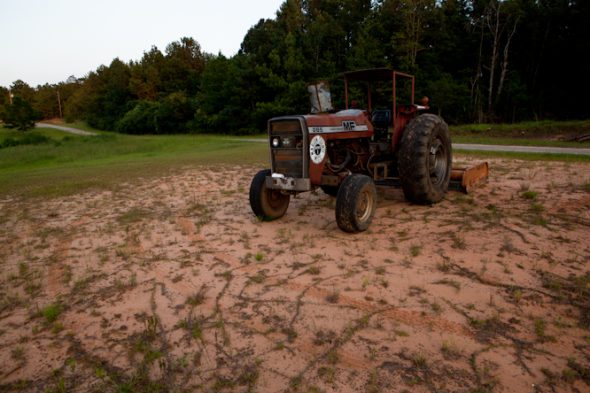
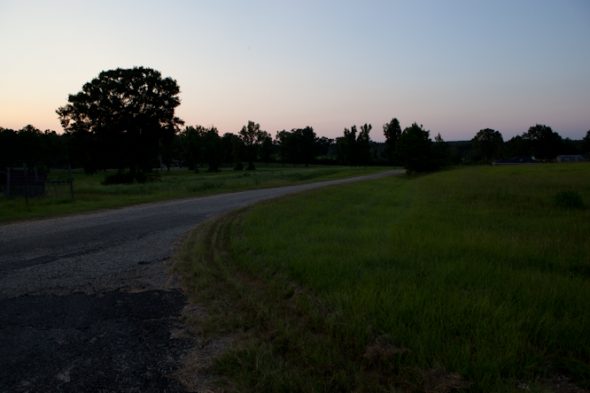
“To be honest, we expected there to be more growth by now.” Shareef mumbles, “but I guess we’ll have to be patient.”
The majority of the families that live out in New Medina are retired or have some sort of supplemental income that allows them to live out as far as they do. The lack of career opportunities in rural Southwest Mississippi made it less appealing for young people and that’s why New Medina has now become more of a retirement community than a haven for young Muslim cultural development. This has been the most difficult hurdle for the growth of New Medina and that’s why development has been stagnant.
***
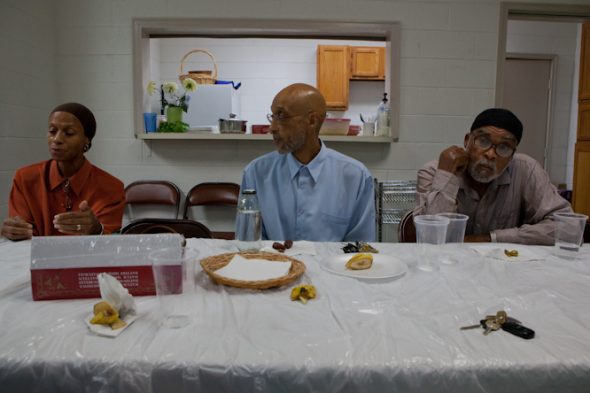
We all gather in the mosque to break our fast. The mosque serves as the center of all the community activities. There are two women and four men present. They welcome us with open arms and dates. Most people in the community have retired and are enjoying the quiet life. The imam of the community, Alvin Shareef, is the son of Abdul Shareef and teaches computer classes at the local community college in Southwest Mississippi. Him and his wife seem to be the youngest members at the dinner. Everyone has a glass bottle in their hand that they use for water.
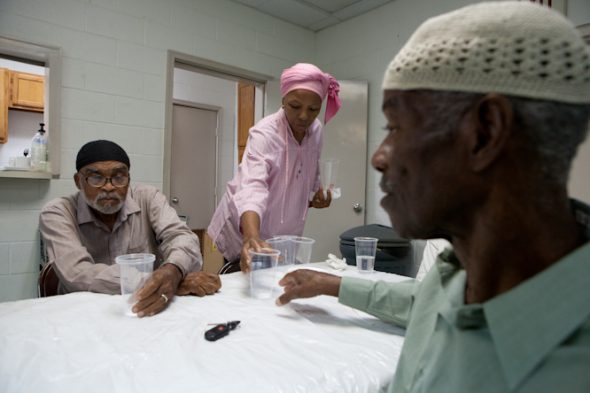
“We try to cut back on as much plastic as we can.” Imam Alvin says.
The community dug a well that serves as their primary water source. It is some of the best tasting water I’ve had. The members of the congregation are all health conscious so a lot of the food we have for dinner is grown locally.
“You all need to help get the word out about New Medina.” Says one of the community members. “We need younger people. More pioneers”
“I get what you’re saying, but I like living in New York.” I say, “why would a young professional want to move here?”
“But we want people to enjoy living a full-life.” Says Imam Alvin. “Right now, a lot of young people are stuck in these unnatural concrete jungles and the life is just so artificial.”
There is a part of what he’s saying that makes a lot of sense, but there is a part of me that refuses the idea of living out and away from everyone else.
“But don’t you feel like you are just escaping from everything else?” I refute.
“But what does the fast city life have to offer? The days we get tired of the country life we go visit Hattiesburg or Jackson. Sure, it’s no Chicago or New York, but it has all the amenities we need.”
We agree to disagree.
“How old are you?” Asks one of the ladies sitting in the distance.
“24,” I say.
“Yeah, well you’re too young to understand what this means and why you would need it.”
Everyone laughs. A part of me is upset that my point isn’t understood but when I look around I can’t help and notice that everyone here maybe 30 to 40 years older than me, but they are in great shape, have very healthy eating habits and most importantly are happy doing it. So I join them in the laughter. I have to accept that most people in New York in their age are not as healthy or as happy.
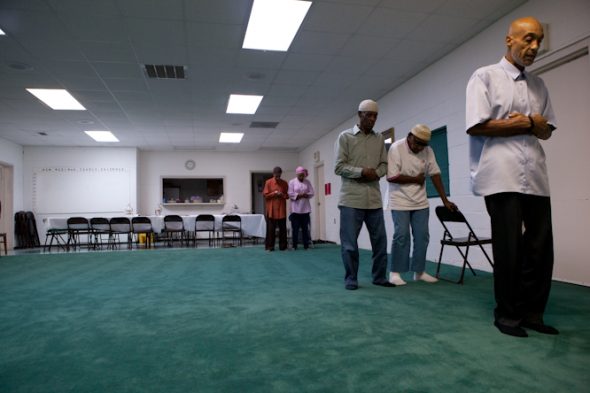
***
We head out in the night with Brother Abdul as our guide. There are no lights on the road, just a Toyota Tacoma leading the way. We follow him as carefully as we can.
I stick my head when I notice the stars in the sky. I flip out.
“Aman, look! Stars!”
Aman shrugs. Living in New York City the lights from the buildings blind what’s above us. It had been over a year since the last time I saw stars. The sky stands naked, the way they looked in my astronomy textbooks, the way we all are supposed to see them.
A minute later, the highway stands in front of us. The flood lights of the highway blind the sky but will help guide us through the night.
Brother Abdul waves goodbye and turns his Tacoma around and takes the skies and stars with him.
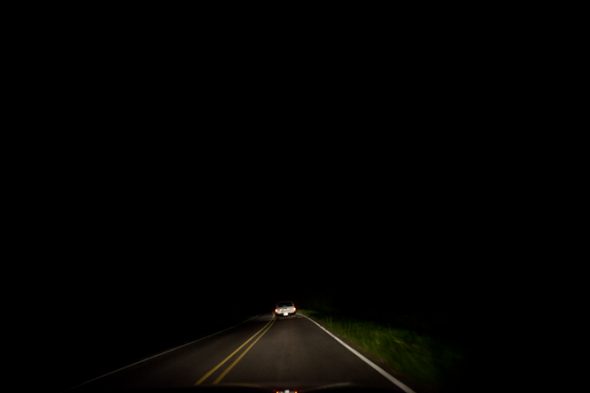
Category:
Tagged with:
Share it:
Comments Off on VIDEO: Day 17 – Masjid-El-Noor – 277 Scott Road
Category:
Tagged with:
Share it:
It’s said there’s never a taxi cab, or a cop, around when you need one.
In Toronto, that’s likely true when trying to hail a Taxi at least five times a day.
As for the Police?
Somehow cops magically appear around masjids looking to make quota and ticket illegally parked cars or cabs at least five times a day.
Parking. Praying. Ticketing. Towing.
It’s all a kind of game.
Category:
Tagged with:
Share it:
Comments Off on 30Mosques.com | Day 15: Something Is Not Right In Me
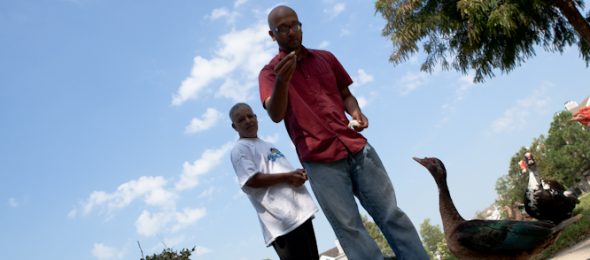
By Aman Ali
My father is battling one of the strongest demons he’s ever faced in his life. He’s 66 years old and began working at the age of 9. Health reasons forced him to recently retire and ever since he’s been coping with what relevance he feels like he has in this world.
“The only thing I know is work,” he said before pausing and staring at a wall. “As long as I’m able to work, I want to work. Right now I feel like a cripple.”
New Orleans wasn’t a scheduled stop on our tour, but I wanted to surprise my parents with an unexpected visit. My brother Salman lives here and my parents moved in from their home in Columbus, Ohio about a year ago when my dad was forced to retire. After spending over 30 years working in the baking industry, my dad had a severe heart scare last year and had to stop working.
Now, he spends his days in my brother’s apartment wrestling with a retirement he wants no part of.
“I cannot relax,” he said. “I have to do something. That’s my nature. Maybe I’m not used to it yet but I don’t want to get used to it.”
I cannot begin to tell you how hard my father worked to make a better life for my brothers and I. I’m sure your father did too. But I feel like it’s something we can never mention enough. But it’s times like this that make it so painful to watch my father go through this struggle when I feel like he doesn’t have to.
Because I live in New York City and am constantly traveling, it’s a rare gem to see my parents and any of my four brothers who are scattered across the country. Anyone who knows my family knows our passion for verbally berating each other with jokes, one-liners and insults. So I was eager to break fast with everyone at the mosque and throw some verbal jabs at my dad when he totally snubbed me and my brothers and sat with some of his friends.
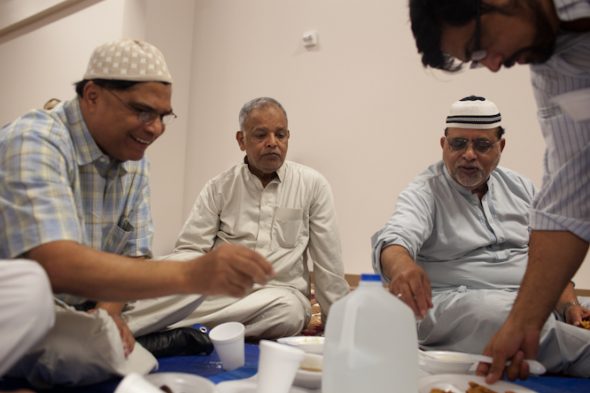
“It’s weird, dad has friends now,” my little brother Zeshawn snarked. “He’s BFFs with those guys over there and they formed their own clique. It’s like the Muslim version of Mean Girls.”
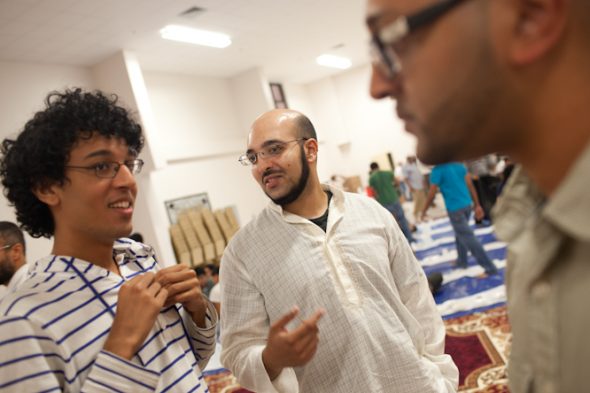
I interrupt my dad’s bromance session and convince him to sit with us and he begrudgingly agrees. I asked him what his daily routine is like in New Orleans now that he’s unofficially retired. He wakes up every day to take my mom to work. He then comes home to do a little bit of cooking, watch tv and maybe pray at the mosque before it’s time to pick my mom up from work at the end of the day.
“Sometimes I get jealous dropping her off because she gets to work and I don’t,” he says while drinking some tea. “It’s tough seeing somebody work and all I can do is be the chaueffer.”
My dad raised my four brothers and I by making huge sacrifices. He worked for a baking company and was on the road 4-5 days a week meeting with clients all around the country. Working is the only thing he knows how to do. When I asked him what hobbies he has in order to relax, he says “I work.”
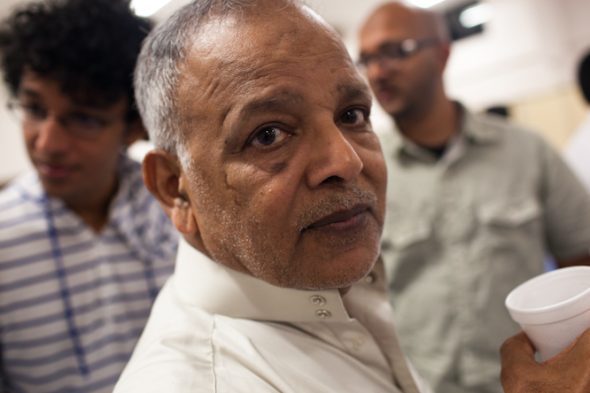
Our family heads home to my brother’s apartment to discuss some exciting new changes in Salman’s life. As you recall from the blog last year, Salman at the time was making peace with a divorce. In September, he will be getting married to a (un)lucky lady and together the two will move to Ohio. It’s one of many reasons my family should be happy right now because of all the good news in me and my brothers’ lives.
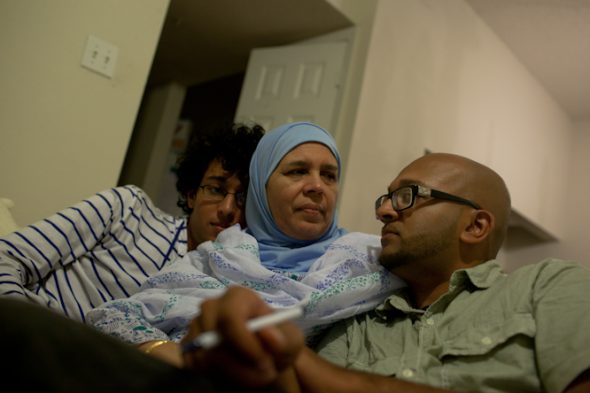
“This is the time we should be thanking Allah,” my mom pleads to my dad. “All the mistakes we made and things we didn’t do, our five boys are fixing those mistakes with their success. When I see Aman, I feel like I’m inside him and doing what he’s doing and I’m inside Zeshawn doing what he’s doing.”
“What’s Zeshawn doing?” my dad said with a wry and squeaking chuckle. “That kid is a bum.”
Zeshawn rolls his eyes and my mom consoles him with a hug.
My dad has a personality switch that goes from stoic to goofball in seconds. One minute he’s quiet and will barely even utter a peep and the next minute he’s riffing about how dorky my glasses are. I giggle incessantly everytime he opens his mouth.
I ask my dad why he can’t sit back, relax and smile at all the joy in our family right now. My mom responds instead.
“Your father worked hard all his life for the past 40 years,” she said. “He can’t stay one day at home. He feels very good when he’s working and helping people and right now he feels like he can’t.”
But there’s no reason for him to work. My brothers and I are blessed to be independent adults who don’t need him to support us. Maybe that’s what the problem is, Salman said.
“For dad’s entire life, he’s wrapped his identity around doing work,” Salman said. “He’s used to being the one that’s in control. He’s used to driving the bus and he’s having difficulty sitting in the backseat.”
My brothers and I have tried what feels like everything to comfort my dad during this difficult time. We call him every time we get a free moment and visit whenever we can. We’re all doing very well in our respective lives and why can’t that be enough?
“We don’t know what makes him happy in life, honestly,” Salman said. “It’s important that we want our father to be proud of us, but it’s his personality he’s always going to find something to be unhappy about.”
My father has a success narrative similar to many fathers out there. He grew up in India and at a young age was determined to move to the United States when he married my mom. He was extremely poor and one of his first jobs was mopping the floors at a Dunkin Donuts. From there he worked his way up the ranks and onto corporate baking companies.
“You worked so hard, so now is the time you should be praying to Allah thanking him for all that he’s given us,” my mom said.
My dad wiggles around on the coach and squeams. He stares at a wall and I can tell he’s beating himself up on the inside. My father is extremely hard on himself and always feels like nobody likes him. Maybe it comes with the territory of being a father, a job most people often don’t give enough credit to.
“All I want is for my kids to respect me” Dad said.
My dad had a pretty traumatic upbringing in India, the details of which I barely know. But for that reason, he doesn’t often keep in touch with relatives because it reminds him of the past. But my mom asks him how can he expect us kids to respect him when he neglects people pivotal to him in his own upbringing.
“You haven’t seen your aunt in almost 15 years,” my mom said. “She practically raised you like her own son.”
“I raised you Aman like you were one of my own sons too,” my dad said with his goofy chuckle again. “Good thing I saved the receipt on you though.”
My dad mentions he’s happy to see me though because for the past few days he’s been feeling down.
“I’m feeling sick,” he said. “Something is not right inside me. I don’t know what. The last two days I didn’t do nothing but sleep. Something is not right inside me.”
I’m too scared to ask what he means by “Something is not right inside me.” But it’s been stuck in my head and I’ve been praying ever since he no longer feels like this.
I wake up the next morning and my dad asks me to come with him to a pond nearby the apartment complex. He’s carrying a loaf of bread and all of a sudden more than 25 ducks see my dad and run towards him in anticipation.
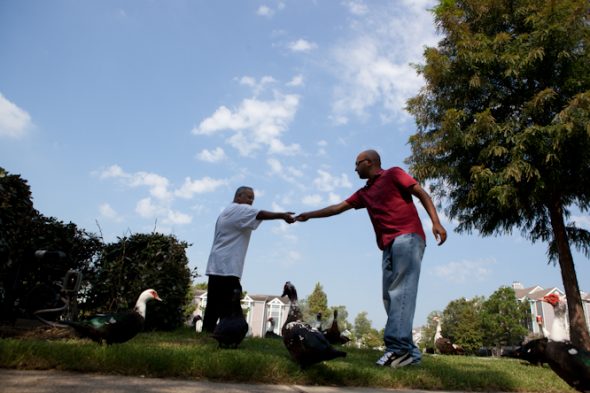
“The ducks here love me,” he said. “They wait for me every morning by my car. They don’t do this to anyone else.”
And he’s right. Bassam pulls out his camera to take pictures and the ducks begin to run away. My dad walks over to the other side of the pond and the ducks follow him. He hands me some bread slices to feed the ducks.
“I come here every day,” he said. “It feels good how much they love me. They’re like my pets.”
I asked him who loves him more, his sons or these ducks.
“Well, these ducks never talk back to me or ask me for money,” he quipped.
Thinking about my family keeps me up at night these days. I’m blessed to have so much success in my life but at home I feel like my family is broken. Its moments like this when this roadtrip means nothing to me if I can’t hold down my home. Maybe something is not right inside me too.
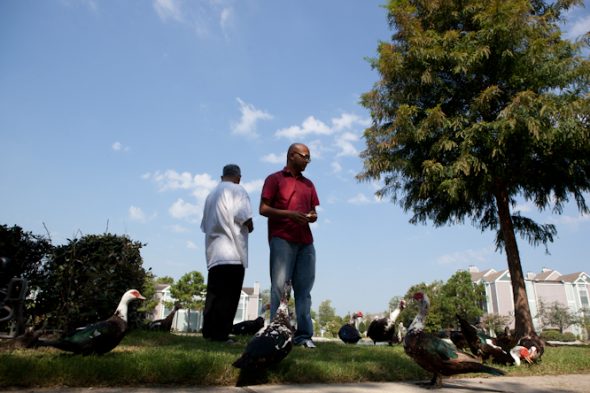
Category:
Share it:
Comments Off on 30Mosques.com | Day 14: Google Chat In The Car
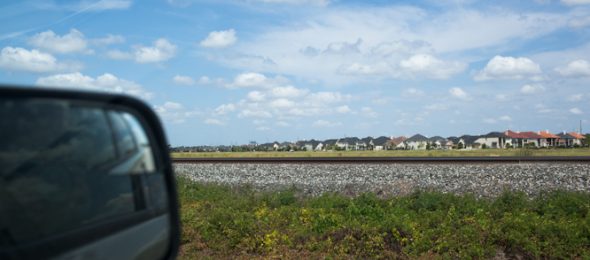
By Bassam Tariq
The following is a Google chat conversation with my wife while driving to New Orleans. A larger story on Houston will follow.
A-dawg: sup
B-unit: Not much, on our way to New Orleans.
B-unit: Aman and I just stopped to take some pictures of the cotton growing you mentioned before leaving:
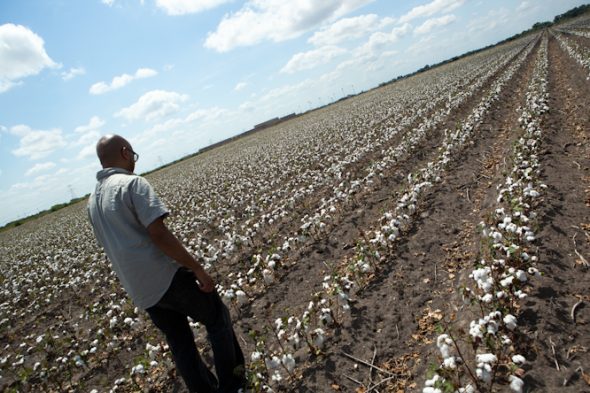
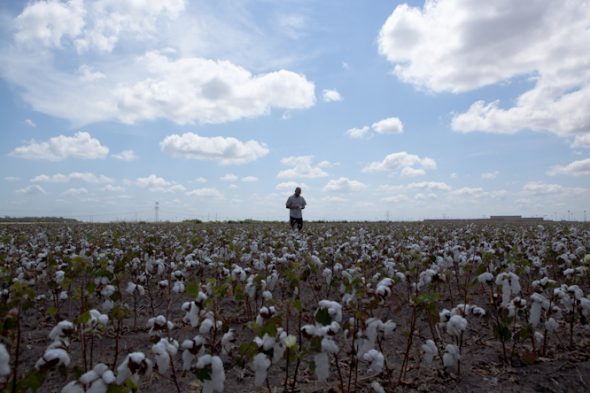
A-dawg: those are great!
A-dawg: so do you miss Houston already?
B-unit: family and friends, yes. The place, not so much.
A-dawg: what’s wrong with Houston?
B-unit: I duno, it’s never been encouraging.
B-unit: there is nothing to do here.
B-unit: last year, when we did the trip – we visited the community i grew up in, which was great.
B-unit: http://30mosques.com/archive2010/2010/08/day-11-texas-synott-mosque-in-houston
A-dawg: yea, I read it.
A-dawg: we were supposed to meet up that day..
B-unit: haha I remember that. There just wasn’t enough time.
A-dawg: there never is. You are always on the run. m
A-dawg: is that why you like NYC better?
B-unit: It’s not that i like it better. it just feels like there is no sense of urgency here.
B-unit: and people just were never very encouraging here.
A-dawg: what do you mean?
B-unit: like last year, before we embarked on the 30 Mosques trip, i came to visit my parents (and you) when i told some people what i was doing. They just couldn’t understand why.
B-unit: they wondered if the project is profitable..
A-dawg: yeah, but i gave you a hard time too when we met.
A-dawg: that was a nice meeting
B-unit: ha yeah, i bought that big book from pakistan and a collection of photos i took in pakistan.
B-unit: hoping to impress you. haha
A-dawg: lol
A-dawg: but anyway – i don’t know why the lack of urgency is a bad thing
A-dawg: i think people do a good job here of soaking it all in.
B-unit: what does that even mean?
A-dawg: iftar parties last into the night. things may move slower but maybe it’s because people here are taking time to enjoy the things that matter to the
A-dawg: like being around family and friends
B-unit: yeah, good point. People in new york never stop for one another. Everything is work, work, work.
B-unit: here’s what I think of Houston:
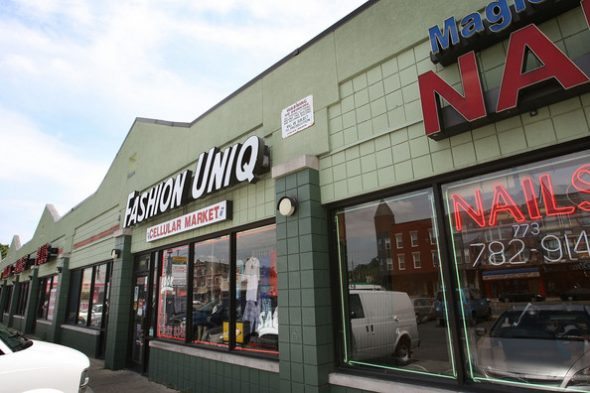
A-dawg: yikes thats rough.
A-dawg: here’s what I think:
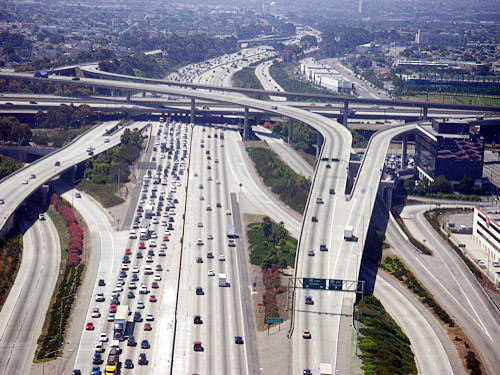
B-unit: riveting..?
A-dawg: lol but there is heart here. In the strip malls and large winding freeways. nyc may have more history but it just doesn’t have the kindness and big hearted
B-unit: mehhh check out this gif i just made.

A-dawg: what? whos that?
B-unit: some uncle that was screaming at the pakistani independence day flag raising i went to. i was hoping there would be singing and dancing. but there really wasn’t much happening.
A-dawg:hm ok. i dont know if it’s doing anything for me.
B-unit: here is a picture of the event:
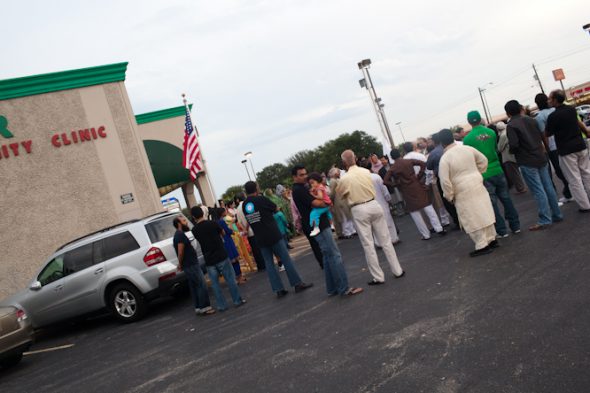
A-dawg: did you stay for the flag raising?
B-unit: couldn’t. they were taking too long.
B-unit: plus your family was coming over to break fast with mine. I had to get ready and stuff.
A-dawg: oh yeah, thats why you couldnt make it to the mosque.
B-unit: yea… i didnt want to disrespect your family or even mine.
B-unit: my mother cooked so much.
A-dawg: lol. she did.
A-dawg: so are you worried that you didnt get a chance to break fast at a mosque?
B-unit: I was a little bit in the beginning. but we needed a pitstop. It’s sad that it’s houston thats the pit stop. but i’ll figure out how to talk about the comunity.
B-unit: btw i really liked this man’s mustache. i think this is my next stab at it.

A-dawg: lol
B-unit: so are you back to work today?
A-dawg: yeah, back in the office.
B-unit: better than being out in this crazy heat.
A-dawg: lol. again hating on houston.
A-dawg: I guess i’ll never understand what your problem with houston is.
B-unit: ….
B-unit: 
A-dawg: there’s just no getting to you..
B-unit: but you know. houston is still home for me.
A-dawg: really?
A-dawg: you have like disowned this place
B-unit: no i havent
A-dawg: alright. other then your family being here. what makes this home?
B-unit: because this is where we met.
B-unit: the debate tournaments, borders bookstore.
A-dawg: har har.
B-unit: lol, im being serious. i dont know if we’ll be here in the future, but for a starting place i dont think i know a prouder place to mention where it all began when sharing our story.
A-dawg: ![]()
Category:
Share it:
Comments Off on Day 8 – Bosnian Islamic Centre
Tonight is my annual Ramadan pilgrimage to South Etobicoke.
Every Ramadan, it’s worthwhile making the effort to pencil in at least one night of Tarawih prayer in this masjid. The Bosnian Islamic Centre is at 75 Birmingham Street. It was previously known as the Croatian Islamic Centre.
This year, for 30 Masjids, I arrived before the sun had set, intending to pray my late afternoon Asr Prayer as well as Isha and Tarawih, with Iftar and Maghrib inbetween.
Category:
Tagged with:
Share it:
Comments Off on 30Mosques.com | Day 13: Mind The Space
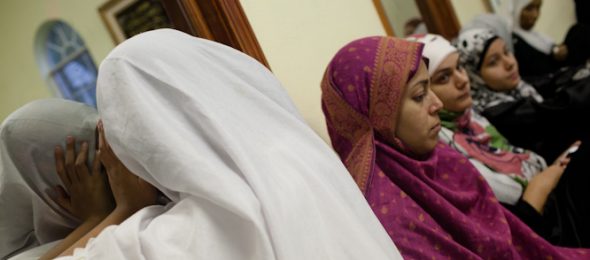
By Bassam Tariq
Stepping into a mosque everyday, we miss the other side of the community and just accepted that being men, we’ll never be able to make it passed what we see. But arriving in the Little Rock, Arkansas mosque, I realize how tired I am of photographing men, hairy men, brown men, Arab men, black men, men wearing kufis, men laughing, hobbit looking men, bald men, Aman and the occasional ambigious man boy. And that’s how I decided it’s time to spend a day in the women’s area.
In my headspace, Muslim women exist only as my wife and my mother. There are a couple of friends sprinkled here and there, but largely my Muslim world is informed by the men that I’ve surrounded myself with. So perhaps that is one of the reasons why it has taken a while to finally jump into the women’s side.
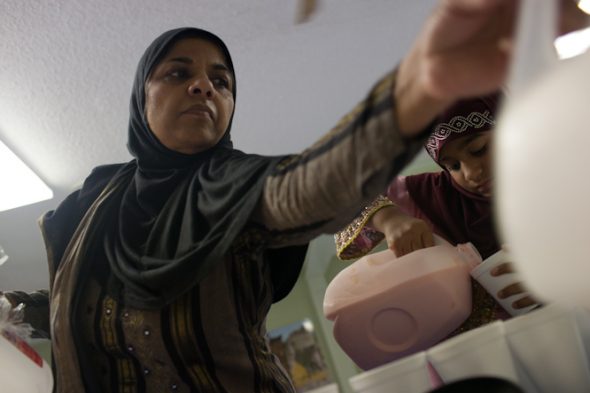
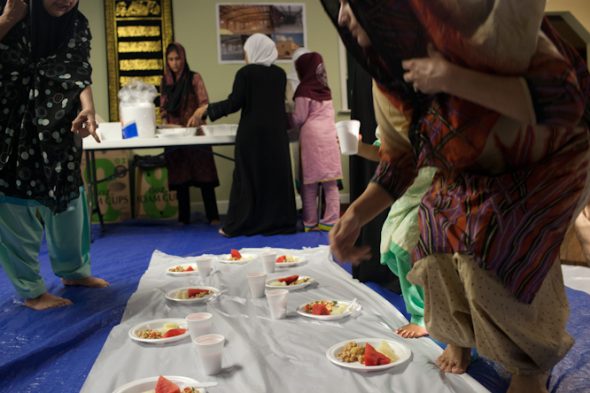
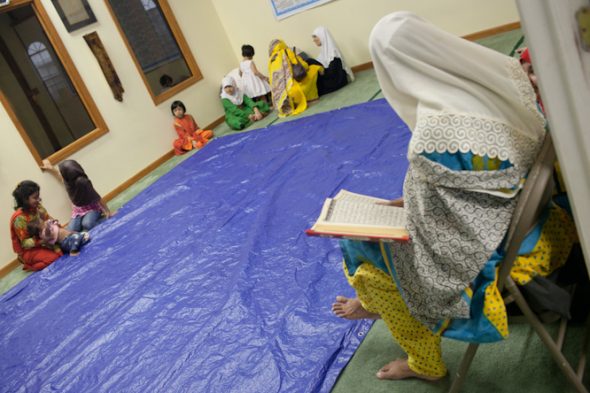
A large swarm of Pakistani ladies (aunties) walk in wearing their traditional garb. Some are covering their heads, others are casually strolling in. They quickly start laying food and pouring drinks in preparation for break fast. Many of them don’t notice me taking photos, others are apathetic. I strike up conversation with one of the younger girls who is in college and ask her to help me navigate through the space.
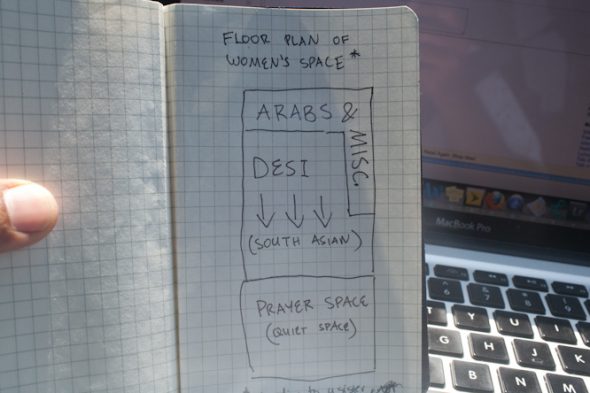
“Yeah, that’s what it looks like here.” Sairah says.
The majority of the female congregation is the Pakistani and Indian. There are also some that have embraced Islam and a small number of Arabs, East Africans, and Bosnians seasoned around the space.
Sairah continues speaking about the congregation. The Little Rock community is a well-to-do one. Many of them are doctors, engineers, businessmen and professors at the local university. Many of the wives are also doctors and professors.
I jot these things down and start scribbling some larger thoughts that are swimming in my head..
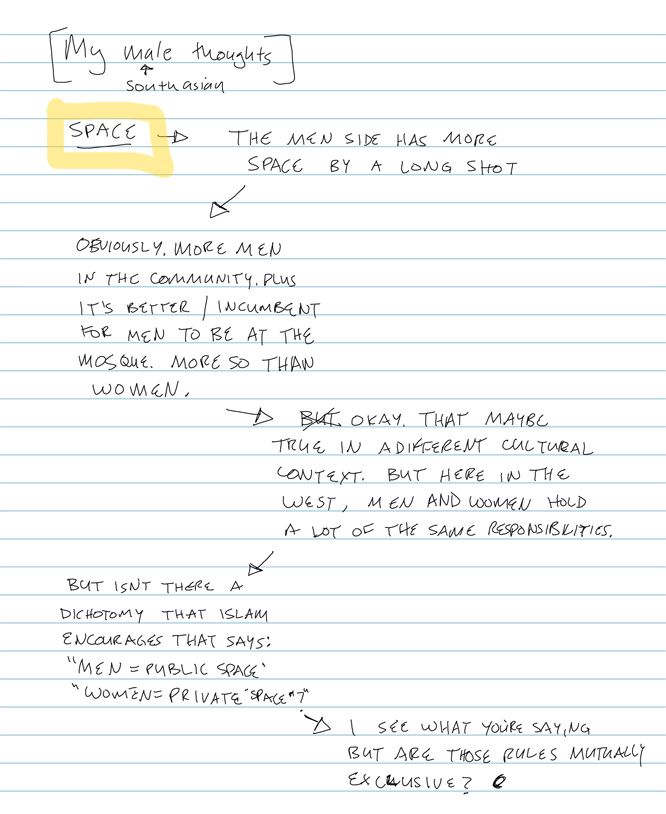
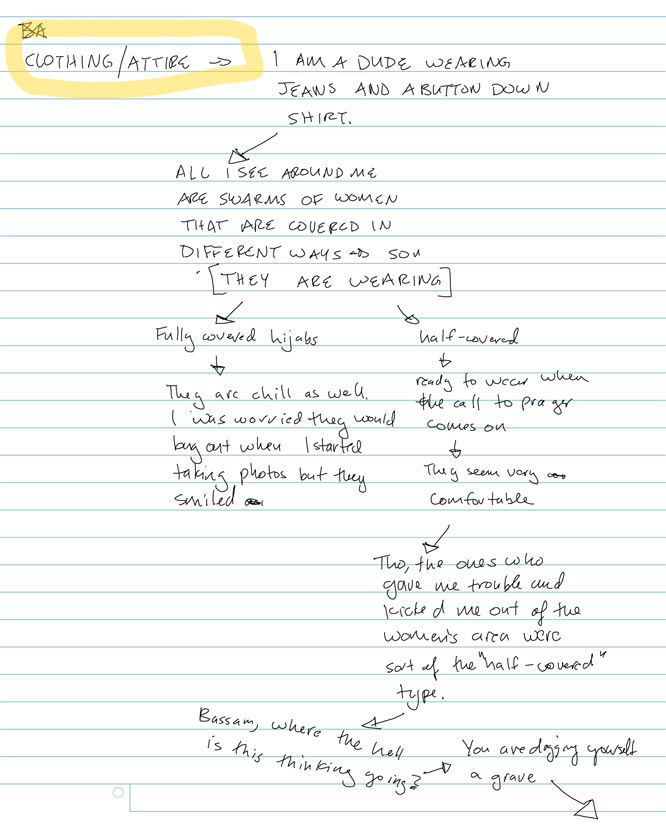
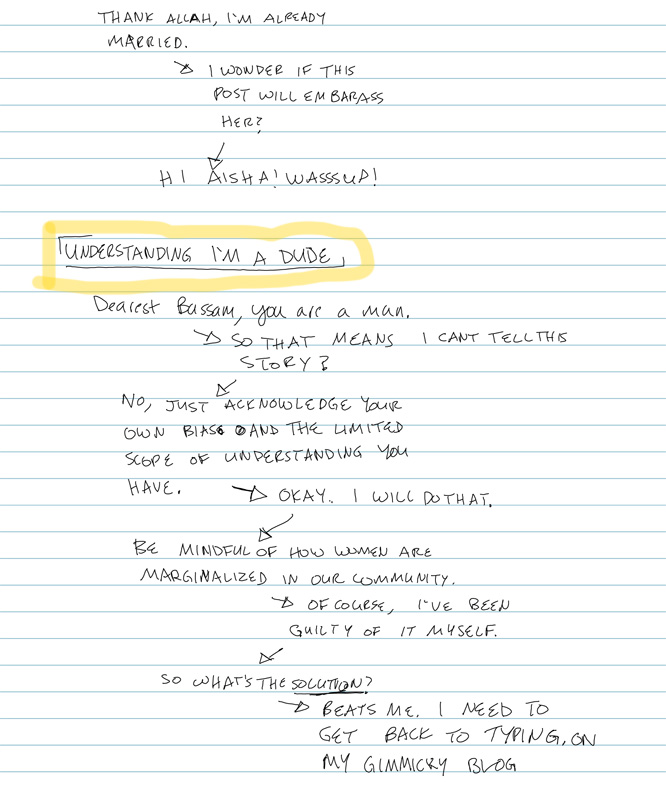
A lecture begins right before break fast time. A man from Trinidad speaks about how Muslims need to get involved in the media. I sit out with the men for a while. Many of them wait for the call to prayer so they can break their fast. But people listen on. They nod their heads in approval.
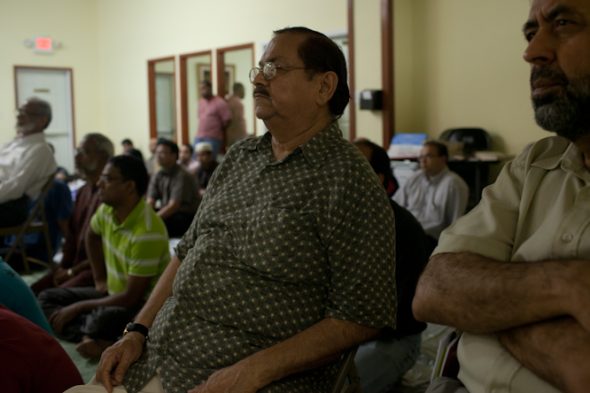
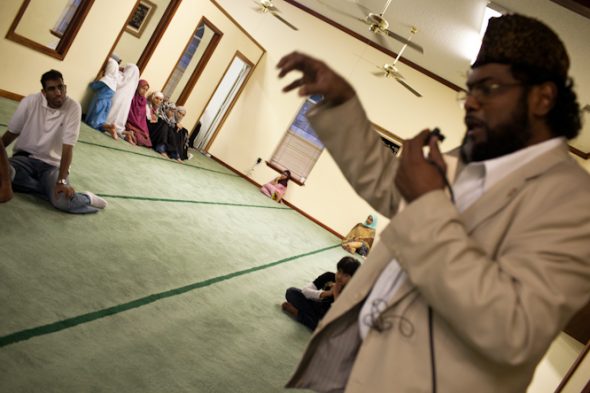
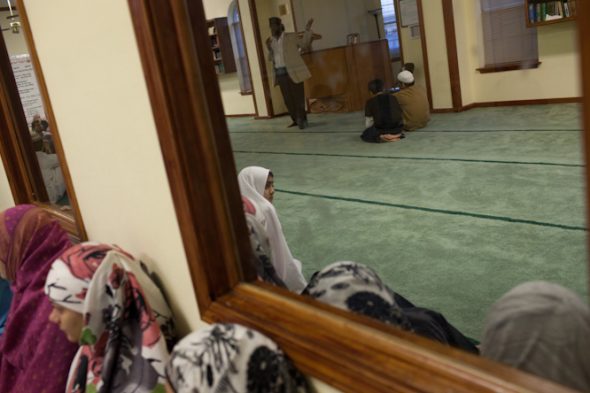
Some women are sitting outside in the men’s area, they listen attentively. Some sit off to the side, whispering to each other and chuckling. I want to know what they are talking about. Hell, I’ve always wanted to know what women are whispering about in the corners of the mosque. Back in high school, the same girls I would see in the hallways I would sometimes see at the mosque. Many of us would never acknowledge each other’s existence even if our parents knew one another. All we would do is whisper something into a friends ear and make cryptic eye contact. Thank goodness there was no Facebook when I was in high school. Would I add the girls from the community as friends? We’d only do it so we could compare the different lives we were living in and out of the mosque.
The mosque was always this place where we put on a face, added a “God willing,” an “alhamdullilah” and a scented oil to cover up wherever we were coming from. It was how we felt was best for us to be accepted into the mosque environment. We played parts in a play where we were both the audience and the actors. It was quite meta.
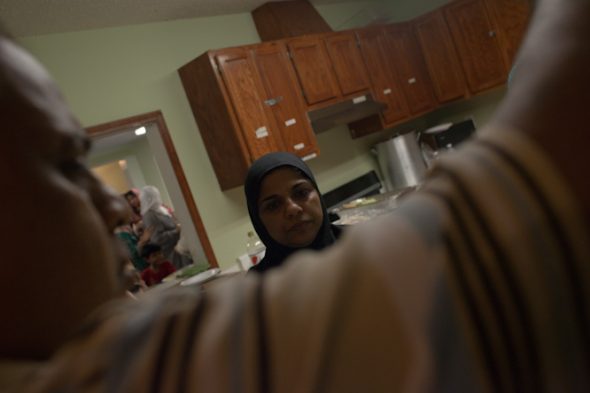
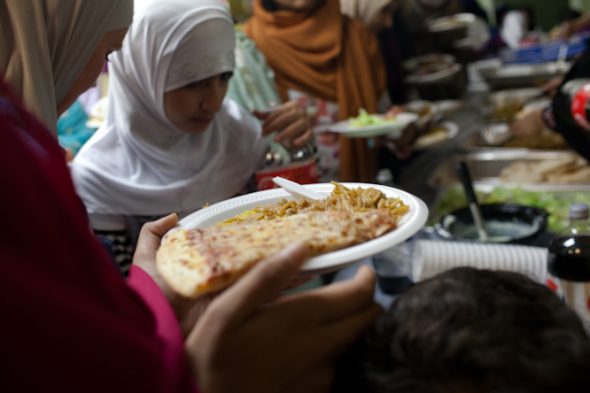
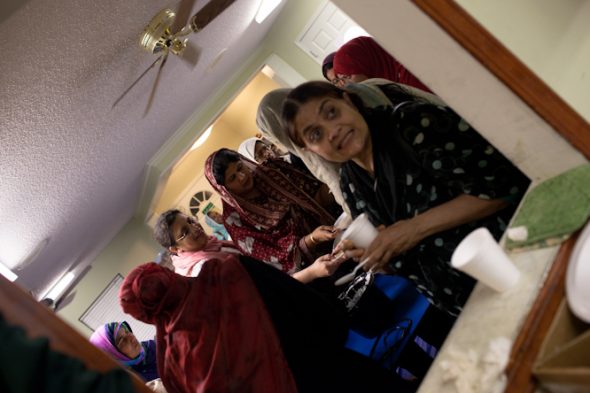
I stand again in the women’s area after breaking my fast and praying. The area is jam packed now. More than it was before. I pull out my camera and take a couple of shots.
“What are you doing?” A lady asks.
I try to give her our 30 mosques spiel but she cuts me off.
“You are not allowed to be here.”
“I got permission earlier and a lot of the women are okay with me taking photos.”
“That’s ridiculous!” She says, “I am going to talk to the president of the mosque myself.”
She storms out of the room, visibly upset at how I can just walk into the women’s area. I follow her into the kitchen, where she is sharing her concerns with an elder lady. The complaining lady looks like she is disturbed by me in their space. I feel like I have done something very wrong, like I threatened or harassed her with my eyes. I want to apologize for something, but don’t know what, so I hold my fort. I may not know much about the happenings on the women’s side, but it didn’t seem like the women were that distraught with me being there. We all live in America, we walk through malls, classrooms, hallways and parks with people from the opposite gender. But at the mosque, we become hyper-sensitive. Granted, the women’s area could be a safe space. There are a couple of women that wear the face veil and there privacy needs to be respected. This is there space to be comfortable, why would they be okay with someone like me ruining it? And that’s our limit. That’s as far as a Muslim man can ever get into these communities. They will never be as comfortable with me as they would with another woman – at least not in this space. So do we just twiddle our thumbs and wonder what it’s like in the women’s area? Or do we get a female partner in crime joining us to add some depth to the story? Or do we stay stubborn and continue trying to get a foot into the women’s area?
“The men’s side is a lot bigger than here. You should go there!” another lady scorns.
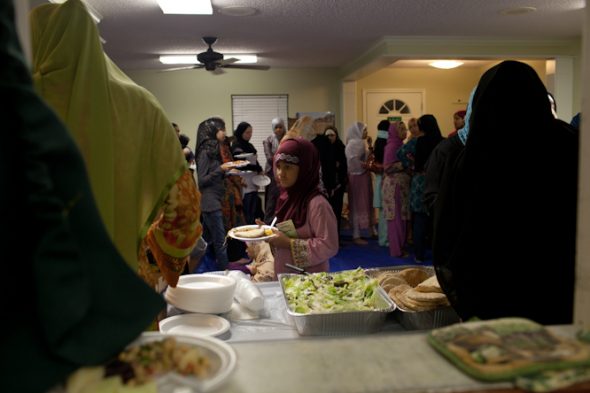
The women can barely take a step without knocking down a kid. The area is loud. Many kids play tag and jump over half-eaten plates. They make grunts and speak in a very sweet broken Urdu. The kids are no more than 8 years old and have a loving and innocent quality that almost makes you forgive them for being so disruptive during prayer.
For those who may not know, kids between the ages of 2 to 8 are a handful at the mosque. The one or two kids that will do a backflip in front of the prayer congregation will be quickly transferred to the women’s section to deal with.
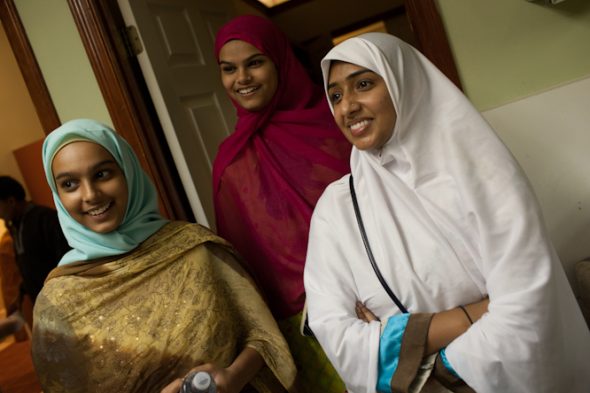
“So yeah, the women area gets really loud.” Sairah says as kids scream in the background.
“Well the kids have to go somewhere right?” I refute.
They shake their heads. I guess that’s the part I don’t understand. The limit of my own understanding. Is a man’s concentration in prayer more important than a woman’s? Or is there maybe another solution, like an in-door day care at the mosque so both men and women can worship easier? But that means a facility, hiring staff and putting on an entire operation. It just seems easier to throw it on the women, right?
By this point in our conversation, an auntie comes by.
“Do you boys not pray?” She asks us.
We leave immediately. It was her nice way of telling us to take a hike. This is their space, I shouldn’t be trampling it.
Category:
Share it:
Comments Off on Day 13 – VIDEO – First Qur’an Festival
You should/might be seeing a Video Unavailable Error from Youtube. The video is still being processed at the time of posting. Because it may be difficult to update the blog while in transit, it was included here as is. InshAllah, video will be available by your next visit. — HiMY SYeD
The First Qur’an Festival continues TODAY in the Ontario Science Centre.
Located at 770 Don Mills Road. The Qur’an Festival is on until 8 p.m. tonight, Sunday August 14 2011. Admission is FREE.
For those who aren’t able to make it in person, you will be able to get a sense of the festival in the video above. Because time is short, it was hurriedly edited. Hence, a very rough cut. Please forgive the poor editing job.
Category:
Share it:
Comments Off on Day 13 – First Qur’an Festival — FREE this weekend — Ontario Science Centre
30 Masjids has taken an afternoon detour inbetween blogging Iftars, Masjids, and Tarawih. We’re still behind in posting, InshAllah, we’ll be back to posting on time by Monday. Because this is happening THIS WEEKEND, it was important to blog this NOW! Please try to pop by and see and experience The Qur’an Festival in person.
— HiMY SYeD
The First Qur’an Festival is happening this weekend at the Ontario Science Centre in Toronto, Canada.
A number of Muslim artists are showing Qur’an related art works. There is the expected Calligraphy, but there are also abstract pieces, as well mixed media.
Category:
Tagged with:
Share it: